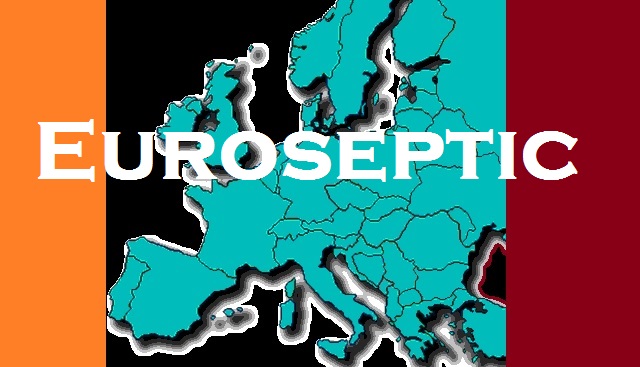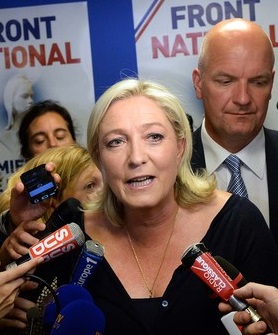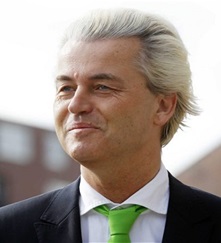European Parliamentary Elections: Eurosceptic Parties Win — but can they organize an Alliance?
Yesterday afternoon, I spoke with my Geneva based European observer following the close of European Parliamentary Elections in 28 member countries. He indicated that both the UK Independent Party (UKIP) led by Nigel Farage and Marine le Pen ‘s National Front each were poised to pick up 24 seats in their country’s MEP delegations. Eurosceptic parties like Denmark’s anti- immigrant People’s Party led with 26.7 percent doubling its delegate slate, while Greece’s left progressive Syrizia came out on top with 26.5 percent. Geert Wilders’ Freedom party tied for second in The Netherland despite poor exit polls on Thursday evening. Elsewhere, the right wing Austrian People’s Party appeared to be leading with 20 percent of the vote up from 7 percent in 2009. In Italy, the Democrat Party led by PM Matteo Renzi trounced the Five Star Movement copping fully 40 percent of the vote. Italy will take over the revolving Presidency next month.
However, there was evidence that some anti-Semitic and neo-Nazi parties won delegates in their European parliamentary slates. Witness Hungary’s Jobbik Party which came in second with 14.7 percent, while Greece’s Golden Dawn was third with 9.7 percent.
For results overall and by EU Member countries, consult the Financial Times European Parliament election results on –line, at this interactive graphic, here.
The Financial Times (FT) reported on the “earthquake” that Farage predicted for the UKIP. The Euro Parliamentary Elections in the UK coincided with local council elections, as well. The UKIP at 27.5 percent of the Euro Parliament vote tally has defeated the Liberal Democrats, unnerved Nick Clegg, junior partner in the ruling Westminster parliament coalition. The UKIP significant electoral victory upset the Labor Party led by Ed Milleband while causing Conservative PM David Cameron to suggest to the Tories, “that it was not business as usual”. These UK Euro Parliament results may portend a scramble for the 2015 Westminster Parliamentary elections. The FT account noted:
Nick Clegg’s grey face told the story of Britain’s European elections. The leader of the pro-European Liberal Democrats was subdued, his eyes glassy, as he spoke of his party’s “heartbreaking” electoral annihilation.
Meanwhile across town at a central London hotel, Nigel Farage was mobbed by reporters as he celebrated the UK Independence party’s “historic” breakthrough, topping the national poll with 27.5 per cent of the vote and 24 seats.
[…]
It was also the first time the Conservatives had come third in such a vote, trailing in with only 24 per cent of the vote. For Labor, second with 25.5 per cent, it was an unimpressive performance, raising doubts about whether Mr. Miliband has the momentum to take the party to victory in next year’s general election.
The FT quipped:
There is no obvious policy fix: any attempt to “out-Ukip Ukip” on immigration or Europe is unlikely to succeed. Meanwhile none of the three main parties has a leader capable of matching Mr. Farage’s “man in the pub” style.
Among UK voters who may have swung to the UKIP in droves were reported to be Britain’s Jews. They may have been motivated by Farage’s disavowal of the troubling anti-Semitic positions of some of the Eurosceptic parties. The exception is the Dutch Freedom Party led by Geert Wilders, who is pro-Israel, while opposing mass immigration and critical of Islam.
Ms. Le Pen has also achieved a stunning upset victory coming in first in France. In her post election remarks, she hinted this could be a prelude to the 2017 Presidential elections. Given the low poll standing of Socialist Premier Hollande amid the floundering French economic problems unless turned around, this could be a possibility. However, the fallout from the Euro parliament elections also may upset the possible future plans of former French President Nicolas Sarkozy and leader of the UMP.
The FT account of her victory noted:
Ms Le Pen now has her sights firmly fixed on the battle to win the nearby Elysée Palace in the 2017 presidential election. “This is just the first step,” she said as she arrived to join revelers.
Few commentators are yet ready to predict that Ms Le Pen, with her fiercely anti-EU and anti-immigrant policies, will make it. But the scale of the FN’s triumph has planted genuine fear in both President François Hollande’s ruling Socialist party and the centre-right UMP.
The 25 per cent score achieved by the FN on Sunday had been predicted by some polls, but the four point gap over the UMP and the slump in the Socialist tally to less than 14 per cent prompted alarm.
The FN broke out of its strongholds in the south and post-industrial north. It came top in 71 electoral departments, compared with 28 for the UMP and just two for the socialists.
A socialist parliamentarian who saw Mr Hollande on Monday reported him saying: “I expected it to some extent, but it was still a big shock.”
In the wake of Marine Le Pen’s stunning victory in France, French President Hollande went on television today. The FT in an article about changes in leadership for the EU reporting him saying:
He would use an EU summit on Tuesday to call for a marked shift from austerity to growth to combat the populist surge. He said the EU had become “incomprehensible. “This cannot go on,” he said, adding it must be reformed to “be efficient where it needs to be and to withdraw from where it is not needed”.
When we posted on Thursday exit poll results in the Netherlands indicated the Freedom Party (PVV) led by Geert Wilders might have experienced a set setback in the 23 seats held by Dutch parties in the Strasbourg parliament, effectively losing two seats.
On the heels of a conversation with a colleague in Geneva, came a news brief from the Chicago Tribune indicating that the PVV was tied with Democrats 66 with four seats each, bested by the Christian Democrat Appeal with five. Wilders’ comment in the Chicago Tribune article was “Four Seats, that’s great. Now we make the first gains for a new alliance of Eurosceptic and anti-immigration parties in the European Parliament”
The FT in its analysis of the Euro Parliament elections was not so sure that the Eurosceptic alliance can be achieved. It commented:
The surge of anti-establishment parties has also led to a scramble to rebuild anti-EU blocks in the parliament, with the two biggest populist groups – France’s National Front and Britain’s UK Independence party, which both secured 24 seats, making them the fourth largest in the assembly – vying for allies.
Marine Le Pen, Front National leader, may struggle to find the six parties needed to form a new anti-EU group in parliament. Nigel Farage, the UKIP leader who already heads a Eurosceptic group, has seen several of his allies – including the Danish People’s party and the True Finns – wooed by Mr. Cameron’s Tories. Since the Tories left the EPP, they have led the small European Conservatives and Reformists group.
Perhaps the wisest comment on the European Parliamentary election results could be that ancient Chinese curse: “may you live in interesting times”.
EDITORS NOTE: This column originally appeared on The New English Review.




